Stichter Hardware was a well-known name amongst Reading merchants for over a century and a half.
To get the full picture of the history of this specific site, we need to go back to the Berks County’s colonial period. The lot where this building sits was once owned by Conrad Weiser, who erected the first building here in 1751. The structure Weiser built became known as the “Old White Store” and was converted into a hardware store by 1789. In 1798 the property was acquired by Joseph L. Stichter who continued hardware business on the site.
The “Old White Store” suffered its first fire in January of 1872 when a blaze originating in a stove at the rear of Bast & Bros Tobacco at 11 North Fifth street spread to the Stichter structure. Due to the nature of the materials in the hardware building, it spread quickly throughout. The following morning’s Reading Eagle described the blaze as “one of the most disastrous ever occurring in this part of the state”.
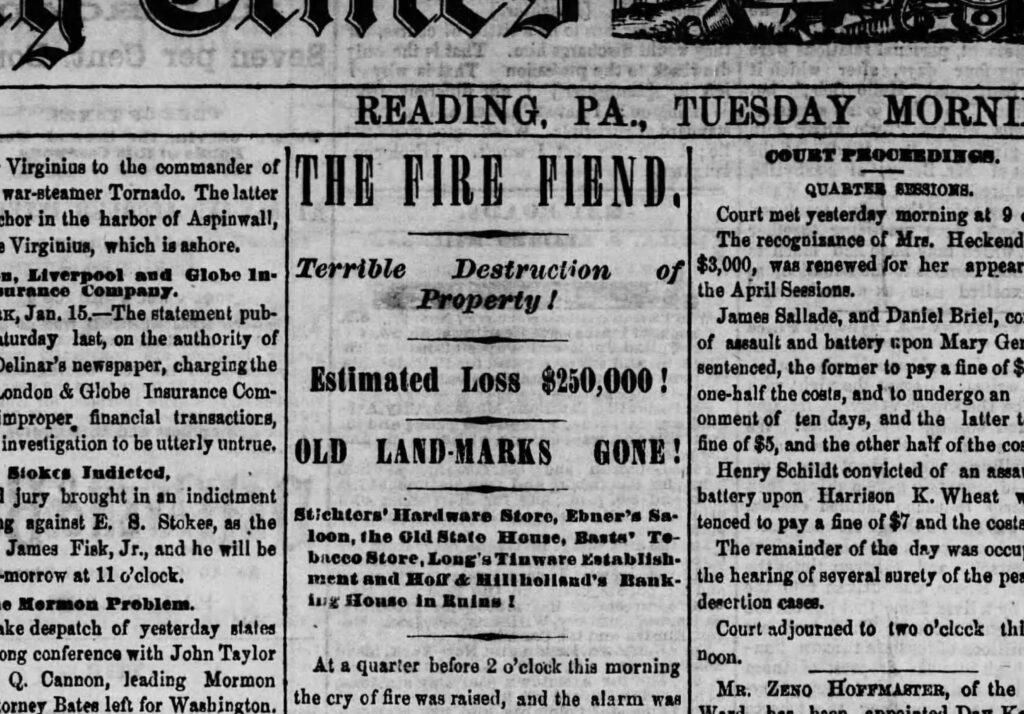
The satellite image below of the northeast corner of 5th & Penn gives you an idea of the scope of loss. The white circle shows the origins of the fire – while that area is currently a parking lot, in 1872 that was 11 North Fifth, home to the tobacco store. The building’s with red X’s over them were completely destroyed, and orange X’s indicate heavy damage but parts of those buildings were salvaged. This was the most destructive fire to ever occur on Penn Square; the center of commerce in Reading.
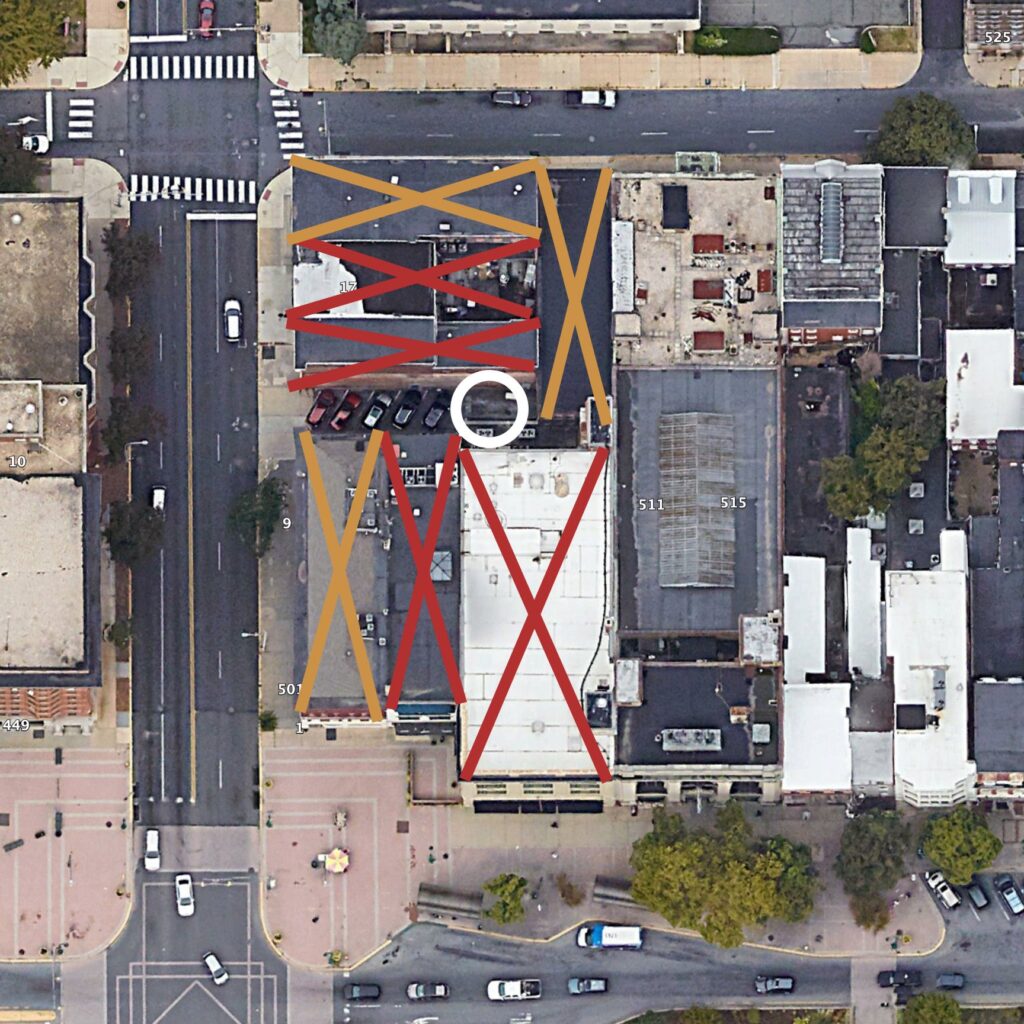
In 1907 a large brass plaque was added to the west side of the building as a monument to Conrad Weiser and the history of the site. This marker is still on the west side of the structure.

Another fire ravaged the building in 1908, this time originating inside the Stichter building, resulting in total loss. After this fire the current structure was built and opened in June of 1909.
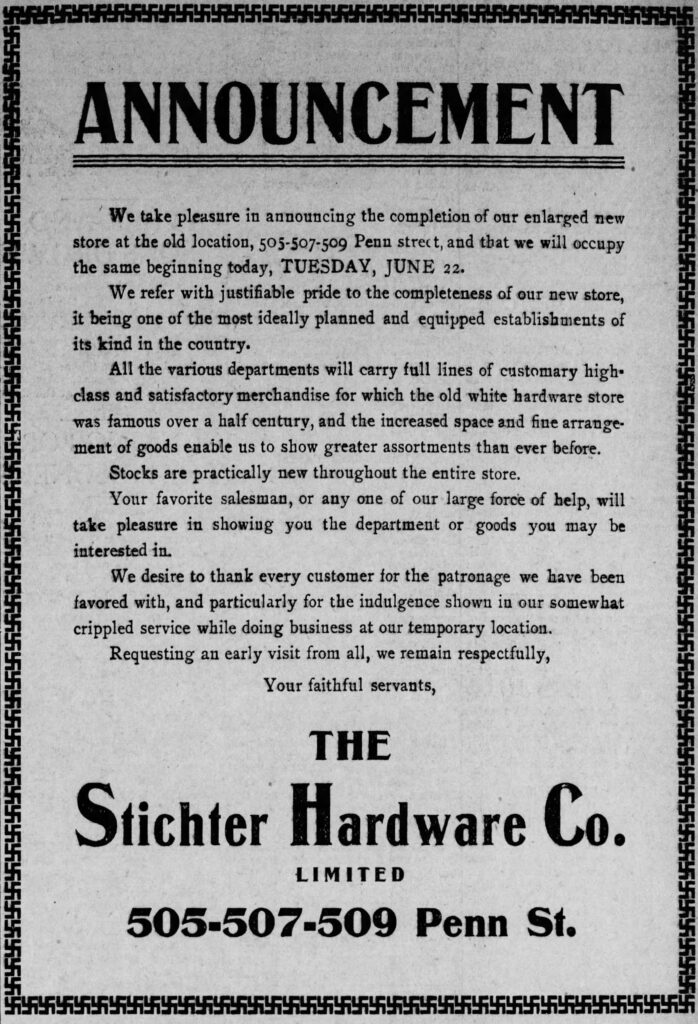
A May 12th, 1913 Reading Times article described the store,
“The display windows are so arranged as to set off to unusual advantage to the various goods carried. They are changed regularly and present a fine appearance. A specialty is made of agricultural implements and the supplying of seeds, bulb, etc. Lawn mowers are sold in great quantities. Sporting goods, although not specialized in, form a big adjunct of the stores’s business. On real hardware, the Stichter store leads. An enormous stock of all size nails, screws, bolts, and other similar things, besides the unusual assortment of tools, is not exceeded by any other store.”
In 1927 the Stichter Hardware business was bought by three brothers, John, George and Paul Rick; all prominent business men in the city. Their family would continue to run the business for another forty years.
The August 27th, 1963 Reading Eagle announced that Stichter Hardware was going to be ceasing retail operations and focus on its whole-sale business. At that time the company was owned by J. Hunter Rick, who emphasized that the business was not for sale. This marked the end of Stichter Hardware retail business being conducted for a whopping 169 years at this location.
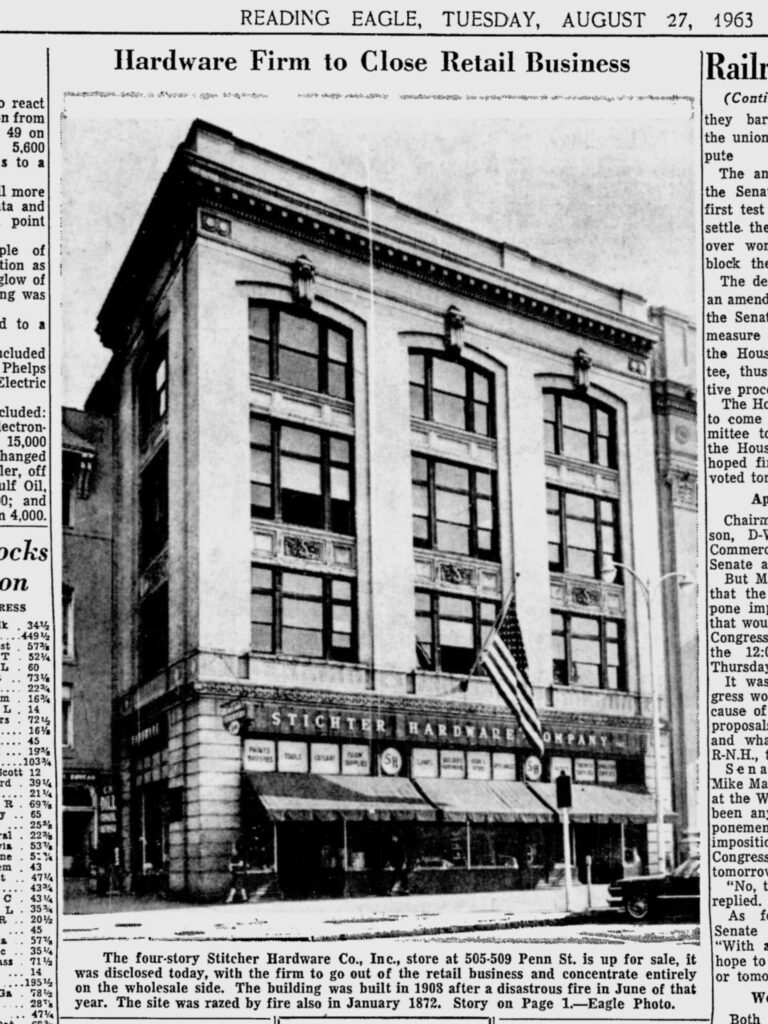
In 1967 it was sold to Floyd Worley of Worley Lumber and Musa Eways of Mast Engineering. Shortly after the building at 11 North Fifth Street in which the 1872 fire originated was razed to make way for a parking lot for the Stichter building.
The March 3rd, 1982 Reading Eagle reported that the building was bought by Hamilton Bank and their intention was to turn the building into corporate office space. Hamilton also owned and operated banking out of the Reading Trust Company building which adjoins the Stichter building on its east side.
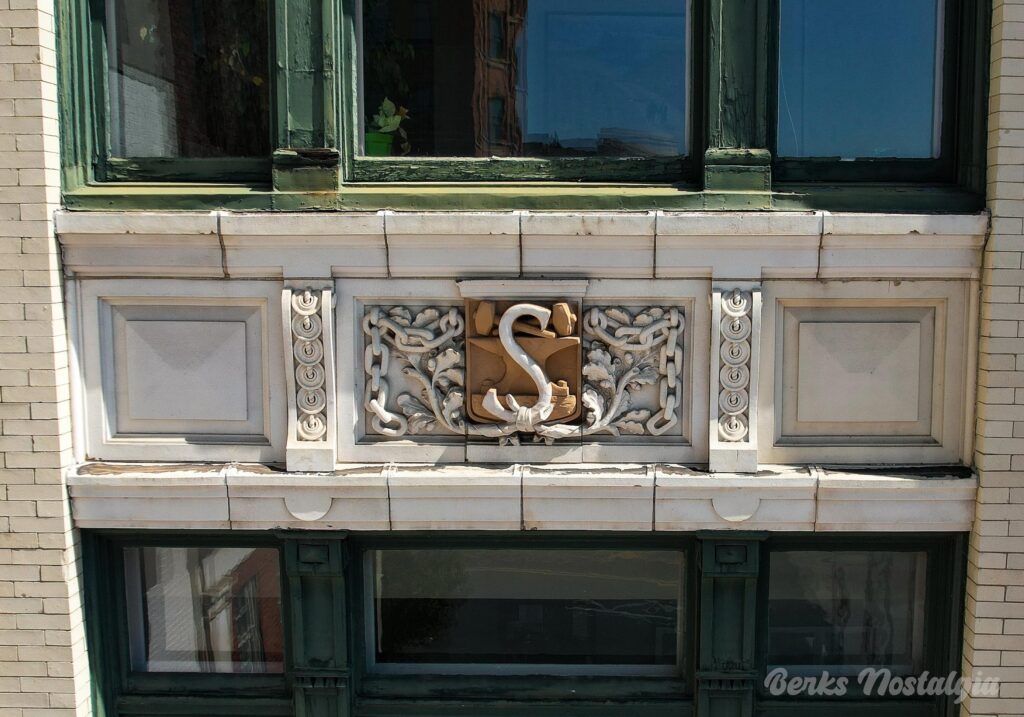
In April 1983 owner Musa Eways moved the Stichter Hardware operations across and down the street to the old Whitner’s Department Store structure, which he also owned and was in the process of turning into an indoor shopping mall.
In June of that same year the city’s Architectural Review Board approved Hamilton Bank’s proposed renovations to the building.
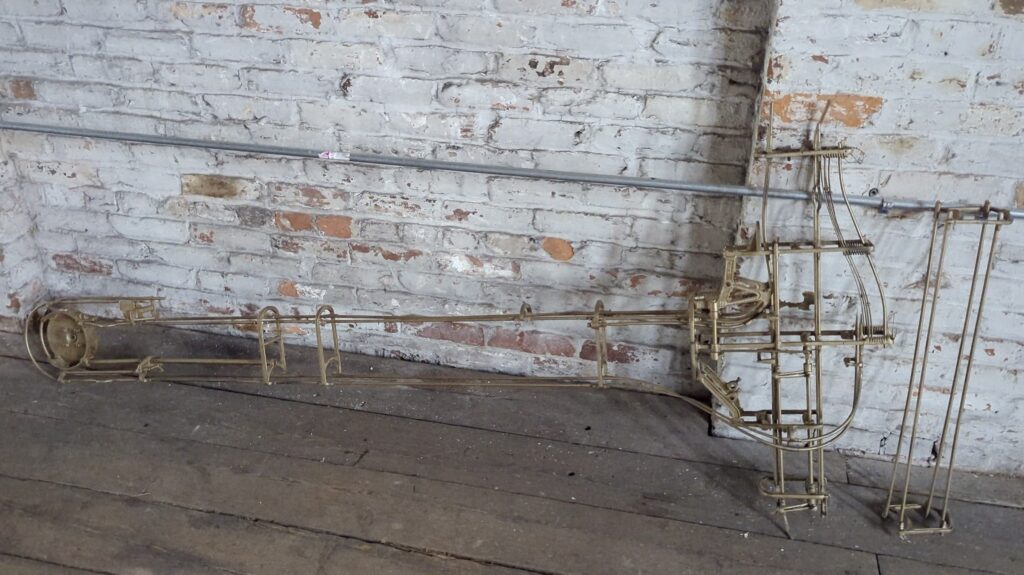
When I published the teaser of this video/article on Facebook quite a few mentioned that they remembered an intricate “cash carrier” system that the attendants would use to send payment to a centralized clerk upstairs. The clerk then counted the change and put it back in the contraption that would maneuver it back to the attendant on the floor. I believe the metal pieces depicted in the video are the remnants of that cash carrying system.
Ultimately the Whitner’s indoor mall failed and the Stichter Hardware business went completely defunct by the mid-1980s.
Although Hamilton Bank is long gone, the majority of the building has remained corporate office space and is almost completely leased by various companies who occupy each of the four floors. The Stichter Hardware building is for sale, if you are interested in the property please contact Sean Moretti at Destination Realty.
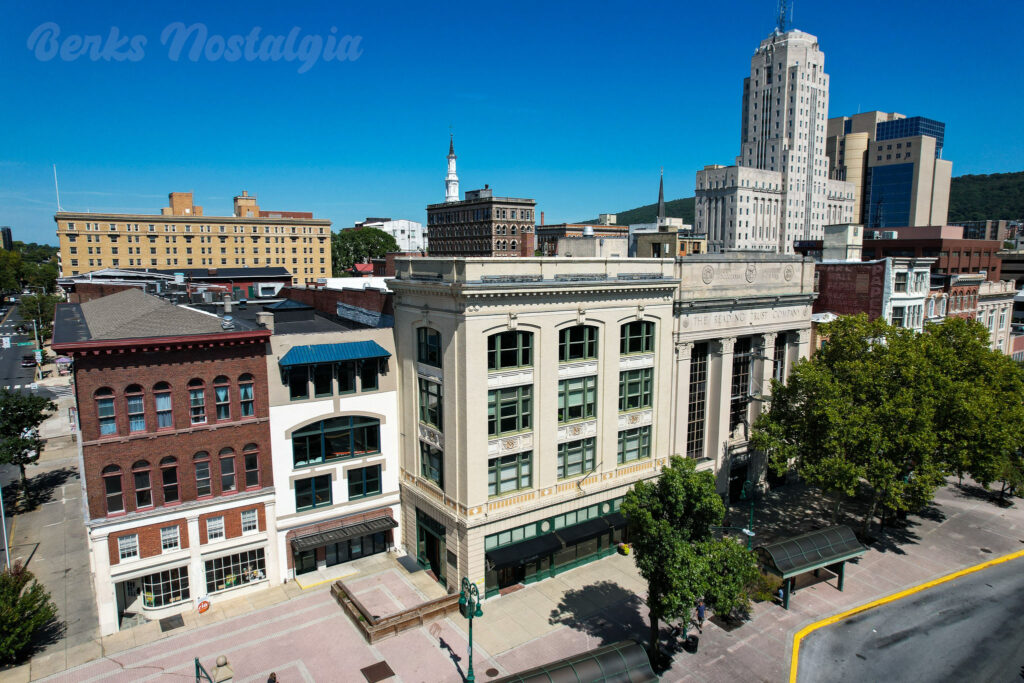
Stichter Hardware’s story spanned nearly six generations; a feat that seems impossible today. For that alone it is worth remembering.

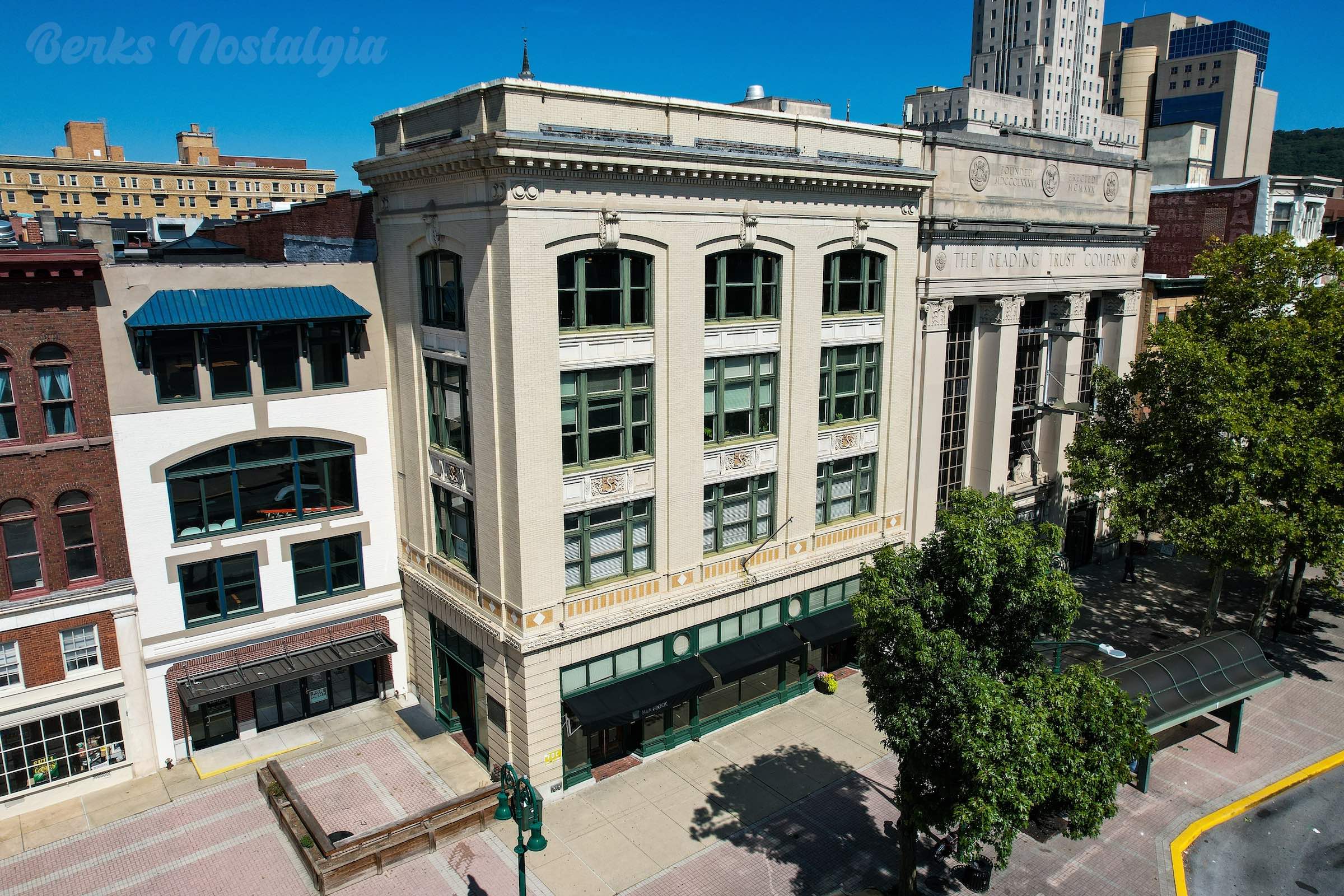
I bought a receipt on Ebay from Stichter’s, dated 1922. Here is the image link (can’t upload for some reason):
https://imgur.com/a/dZ6CaQH
When I was a kid in the 50’s I would beg my grandmother to take me to the Stichter’s Hardware store just to watch that Cash Carrying System, It was very fascinating to watch the canisters fly around the inside of the store on those tracks shown in the picture above.
It was called the “Lamson Cash Carrier” system. They preceded the pneumatic systems. All of the pieces are stored in the basement of the building. I don’t know of any that are in operation in the U.S.